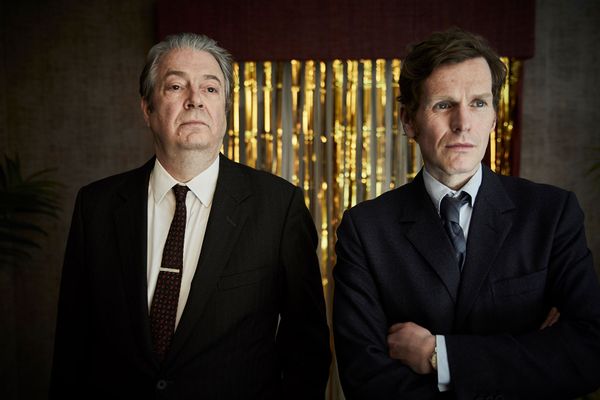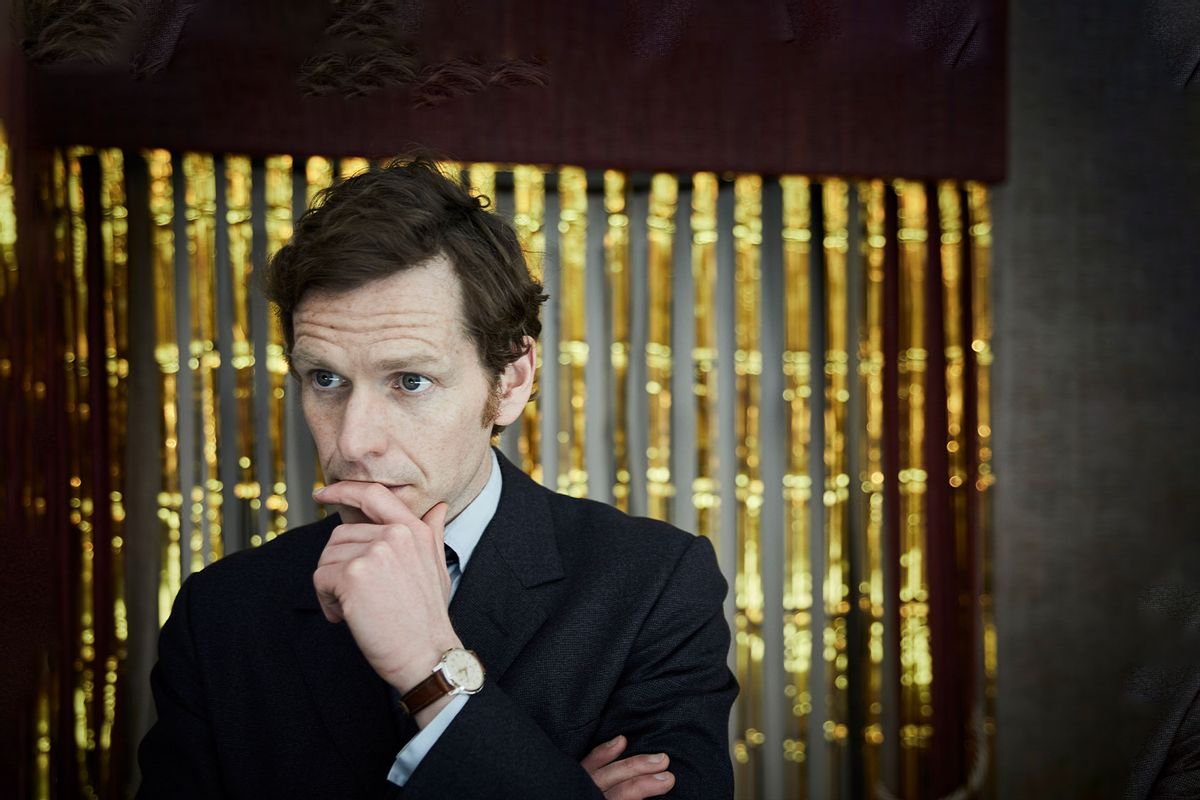Sometimes I contemplate an alternate timeline where "Sherlock" never existed and wonder whether "Endeavour" and its star Shaun Evans may have claimed whatever secret chamber in our hearts that Benedict Cumberbatch's detective conquered.
The two detectives have a few things in common. Sherlock Holmes and Endeavour Morse are two of many crime-solvers adapted from literature featured under the "Masterpiece Mystery!" tent recently interpreted as younger men in their prime.
Each has a long relationship with television, although Holmes' overcoat has been worn by an assortment of actors. Morse is associated with two: Evans and the late John Thaw, who originated the character in "Inspector Morse," which aired from 1987 through 1993, and was revived for five special installments that ran between 1995 and 2000.
Combined, they've ensured Endeavour Morse has been with U.K. and American TV audiences in some guise for more than 30 years, and longer for readers who forged a loyalty to the character in Colin Dexter's books. Evans, however, achieves something we don't often see in many modern detectives, in that he both creates and resolves the mystery of how Thaw's flinty, hard-drinking, arrogant-yet-lovable detective came to be.
RELATED: I'm addicted to British jerks: Even the most awful TV dudes are sexy when they sound a bit posh
"Endeavour" is at its best when it draws our focus to solving the puzzle of its main character, a mission into which Evans' performance draws us more deeply with each new season. His 1960s-era Morse is resilient, but not a hard case; refined, but put off by popular diversions that excite the average person. One of the funnier turns in the eighth season shows the Detective Sergeant visibly suffering through a live game show taping that he never would have chosen to endure if not for an assignment.
Morse's willful ignorance of commonly loved pastimes exasperates his mentor DCI Fred Thursday (Roger Allam). Thursday is also one of the few people who respects Morse's perspicacity and empathy. But in these 1971-set chapters, he's concerned that his partner's loneliness, sharpened by despair, poses a danger to himself and others.
 Roger Allam as Thursday and Shaun Evans as Morse on "Endeavor" (Courtesy of Mammoth Screen and MASTERPIECE)
Roger Allam as Thursday and Shaun Evans as Morse on "Endeavor" (Courtesy of Mammoth Screen and MASTERPIECE)
And this is where the theoretical emotional terrain shared by Holmes and Morse ends. In the seventh season Morse fell for a mysterious woman he encountered in Venice, Violetta (Stephanie Leonidas), only to find out she was deceiving him before she sacrificed herself by stepping in front of a bullet meant for him.
Sherlock of legend, as Cumberbatch plays him, probably wouldn't have been so careless even if he allowed himself to be as vulnerable as Morse, who has taken to drowning his grief in liquor.
That may be simpler to understand than the reason I'm invoking a "Mystery" series that hasn't been on for years alongside a very different one that's been a reliable presence in our lives for the past decade.
The explanation is in that word: reliable. "Sherlock" hasn't had a new episode since 2017 but flits around like a ghost, since it hasn't been officially canceled and may theoretically keep people hanging on the hope of its return forever. It's the ultimate example of emotional withholding.
Want a daily wrap-up of all the news and commentary Salon has to offer? Subscribe to our morning newsletter, Crash Course.
In contrast "Endeavour" has returned with new mysteries regularly since 2013, each carving fresh edges and curves into its detective's soul. But that also means that the wider audience may not have appreciated the show as intensely as Evans' and Allam's performances warrant. It never got a Comic-Con panel or an Entertainment Weekly cover, for example, which says nothing about its merit or quality but a lot about the average couch potato's passion for classic British mysteries.
There are other reasons "Endeavour" may not have caught fire as easily, namely series creator Russell Lewis' adherence to the relatively straightforward whodunit structure, drawing more focus to the puzzles woven through the dialogue and implied by its characters' behavior.
The cases themselves aren't terribly complicated, tending to err on the side of theatricality as opposed to plausibility. Continuing its emphasis on style and character progression, these three new episodes take Morse and Thursday into the world of professional football, a nudist colony and an Agatha Christie-flavored mousetrap.
Each buzzes with a light energy that masks the quiet sickness slowly taking hold of the hero until the situation in the final episode, forbiddingly titled "Terminus," makes it impossible to conceal.
Season 8 of "Endeavour" is the series' penultimate, with production on the ninth and final round of episodes already underway. By the time the series ends, Evans will have played Morse in more TV episodes than Thaw had. With the end in sight the connection between Evans' Endeavour Morse and Thaw's feels closer than ever, previewed in a few surreptitiously placed lines of dialogue and the detective's amplified dolor.
Watching Evans mature Morse from an incorruptible young man muddling through the 1960s into the disillusioned, heartbroken shade we meet in 1971 has been a pleasure. There aren't many instances of TV shows that present younger versions of established sleuths that have enough staying power to last more than a season or two.
"Endeavour" will have run for nine by the time it's finished, and owes its longevity to the crumpled, poetic humanity Evans brings to a detective millions have gotten to know but have only begun to fully appreciate.
"Endeavour" premieres at Sunday, June 19 at 9 p.m. on PBS. Watch a trailer, via YouTube.
More stories like this:



Shares